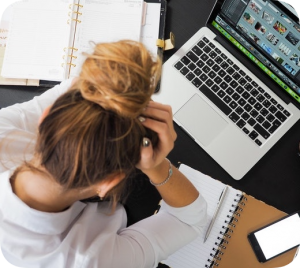 The uncertainty and strain of the coronavirus pandemic caused a significant uptick in stress among millions of people across the country. According to a survey conducted by the CDC, nearly one-third of Americans said that they had recently experienced symptoms of depression or anxiety. In 2019, that number sat at just 11 percent.
The uncertainty and strain of the coronavirus pandemic caused a significant uptick in stress among millions of people across the country. According to a survey conducted by the CDC, nearly one-third of Americans said that they had recently experienced symptoms of depression or anxiety. In 2019, that number sat at just 11 percent.
As a result, companies are making sure to emphasize stress-relief and wellness in their marketing campaigns and as features of new products. For instance, Lincoln is pitching its Nautilus SUV as a “sanctuary” that includes refreshed air, noise-dampening materials on the doors, and calming sounds created with the help of the Detroit Symphony Orchestra. “The door opens and it really feels like a human hug,” said Lincoln’s design director Kemal Curic. Meanwhile, PepsiCo launched a blackberry- and lavender-flavored water called Driftwell that contains magnesium and L-theanine, which the company says promotes relaxation.
“Consumers are increasingly looking for alternative solutions for their anxiety,” says Laura Brett of the National Advertising Division. “So we’re seeing a lot of products outside the prescription or over-the-counter drug space making claims about being able to address that.” Of course, it can be challenging for companies to convince consumers that some products actually contain stress-relieving properties. In fact, consumer advocates say that the number of complaints against products claiming to relieve stress has increased in the last five years, with many citing a lack of scientific evidence.
Questions:
- Why are companies starting to place greater emphasis on their products’ stress-relieving qualities?
- Do you think some companies are exaggerating claims about their products’ abilities to relieve stress?
